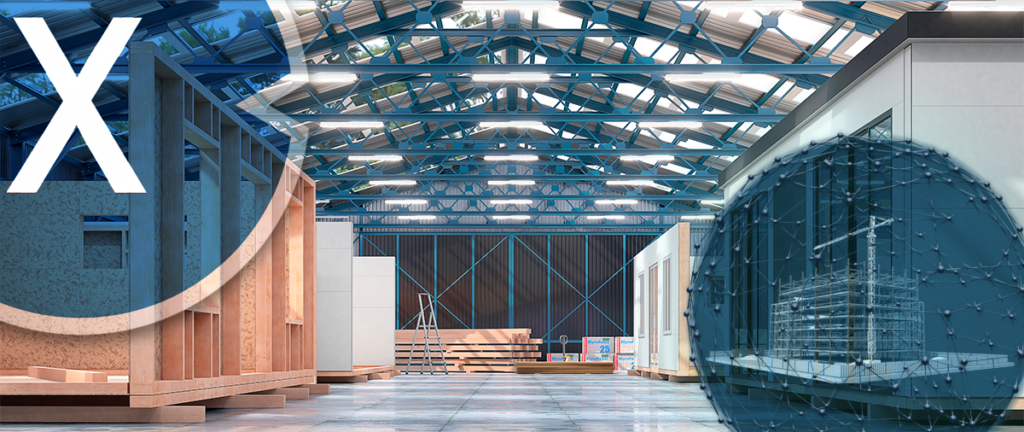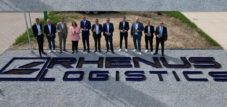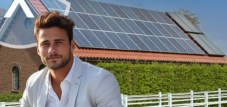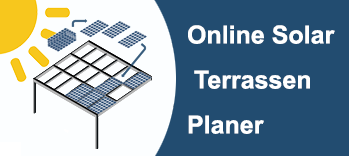Search & Wanted Top Ten Tips for Sustainability Certification Systems for Buildings, Real Estate and Infrastructure Projects
Language selection 📢
Published on: August 27, 2023 / update from: August 27, 2023 - Author: Konrad Wolfenstein
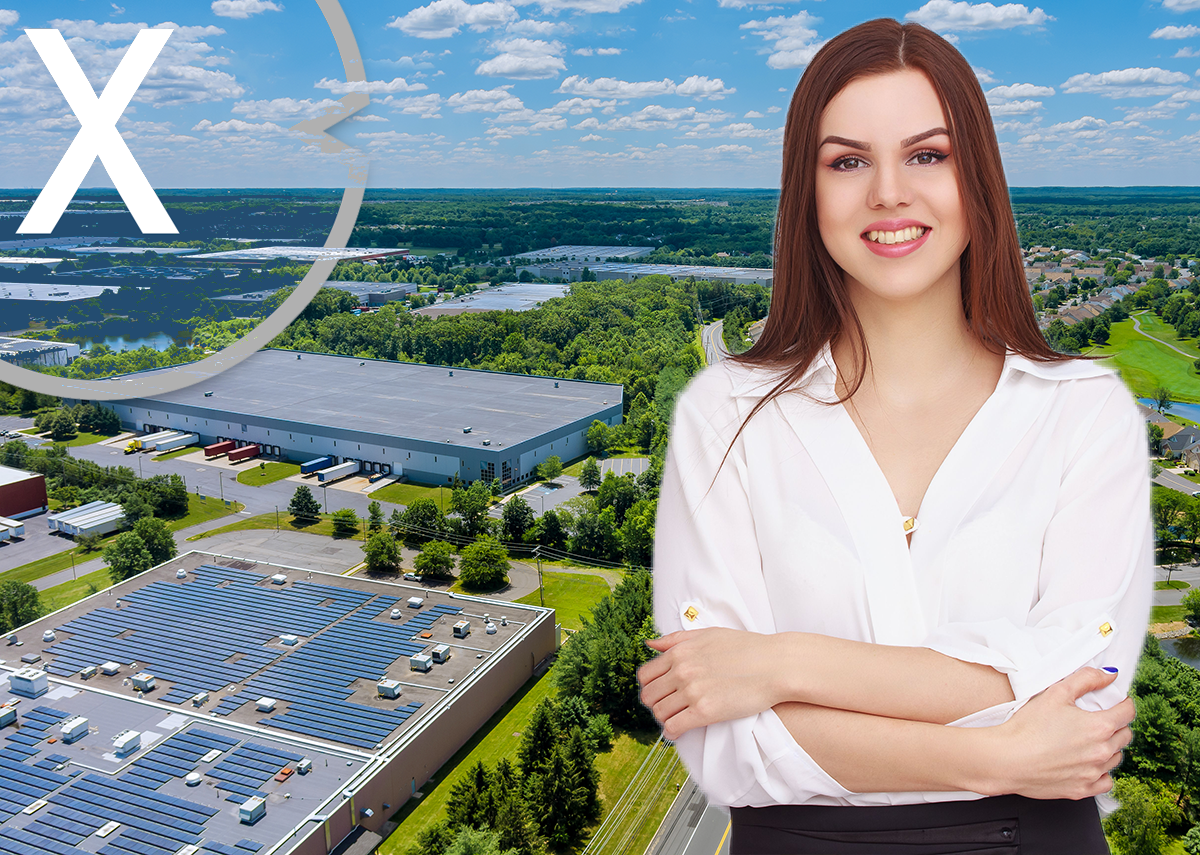
Sustainability certification systems for buildings, real estate and infrastructure projects – Image: Xpert.Digital
🏢 Sustainability certification systems for buildings, real estate and infrastructure projects 🌿
Welcome to your comprehensive guide to sustainability certification systems for different types of construction projects! At a time when environmental awareness and sustainability are becoming increasingly important, it is crucial that the construction industry also does its part. Here you will find out everything you need to know about sustainability certifications for buildings, real estate and infrastructure projects.
Why are sustainability certifications important? 🌍
The ecological footprint of the construction industry is significant. From energy efficiency to environmentally friendly material choices, there are numerous aspects that need to be taken into account to create more sustainable structures. This is where sustainability certification systems come into play. They provide a structured framework that enables builders, developers and architects to make greener decisions and minimize ecological impacts.
The most important sustainability certification systems 🌱
In the world of sustainability certifications, there are a variety of systems specifically tailored to different types of construction projects. Here are some of the leading systems:
1. LEED (Leadership in Energy and Environmental Design) 🌿
LEED is one of the most well-known certification systems and focuses on energy efficiency, resource utilization and indoor quality. It covers a wide range of building types, including commercial properties, office buildings and warehouses.
2. BREEAM (Building Research Establishment Environmental Assessment Method) 🍃
BREEAM is widely used in Europe and places great emphasis on reducing the environmental impact of buildings. It extends to various sectors including commercial and industrial construction.
3. DGNB (German Society for Sustainable Building) ☘️
DGNB is a German certification system that is designed holistically and takes both ecological and social aspects into account. It is applicable to a variety of construction projects.
Benefits of certification 🌈
Certifying buildings and real estate according to sustainability standards offers a variety of benefits:
- Energy savings: Certified buildings are typically more energy efficient and result in lower operating costs.
- Retention of value: Sustainable buildings often retain their value better and can have a higher chance of being resold.
- Health and comfort benefits: Certified buildings often provide better indoor air quality and a more comfortable environment.
- Reduce environmental impact: Sustainable construction minimizes the ecological footprint.
Challenges and outlook 🔮
Although sustainability certification systems have a positive impact, they also face challenges. Costs, planning considerations and the requirements of different certification systems can be complex. Nevertheless, the long-term investment in sustainable construction is worthwhile, both from an ecological and economic perspective.
Similar topics 📣
- 📣 Sustainability Certifications: A Guide to Green Building
- 📣 Green building: certification systems for sustainable architecture
- 📣 Energy efficiency in focus: Sustainable certifications for buildings and real estate
- 📣 Building for the future: Top sustainability certifications at a glance
- 📣 BREEAM, LEED and more: The best certification systems for green buildings
Sustainability certifications are key 🌿
Sustainability certifications are the key to a better future for construction. By assuming environmental responsibility, we help minimize environmental impacts while achieving economic benefits.
#️⃣ Hashtag: #SustainableBuilding #GreenBuildings #EnvironmentalProtection #EnergyEfficiency #FutureofBuilding
Remember that every project is unique, so it is important to choose the most appropriate certification system for your specific needs. Together we can create a more sustainable world of construction! 🌱
📣 Energy-related renovation and new construction, consulting, planning and implementation for industry, retail and municipalities
Our experienced team will support you in optimizing your buildings to reduce energy consumption and promote sustainable energy use with photovoltaics. We analyze your individual needs and create tailor-made concepts that make sense both economically and ecologically. Regardless of whether it is about the energy-efficient renovation of existing buildings or the construction of new energy-efficient structures, we are at your side. Industrial facilities, retail buildings and municipal facilities can reduce their energy costs and reduce environmental impact while improving the comfort and efficiency of their buildings through our tailored solutions.
👨🏻 👩🏻 👴🏻 👵🏻 Energy-saving renovation and new construction, advice, planning and implementation for private households
We offer comprehensive support for private households in the energy-efficient renovation and construction of new buildings with photovoltaics. Our experienced team is at your side to help you advise, plan and implement your sustainable energy solutions. We analyze your energy consumption, identify savings potential and develop tailor-made concepts to improve your energy efficiency. From improving building insulation to installing energy-efficient windows and doors to installing photovoltaic and solar systems - we accompany you step by step to make your home more energy efficient and environmentally friendly. Trust in our expertise and benefit from the numerous advantages that energy renovation and the use of renewable energies offer you. Together we will create a sustainable future for your home.
Plan your solar system for the most common applications conveniently online with our solar system planner!
With our user-friendly solar system planner you can plan your individual solar system online. Whether you need a solar system for your home, your business or for agricultural purposes, our planner offers you the opportunity to take your specific requirements into account and develop a tailor-made solution.
The planning process is simple and intuitive. You simply enter relevant information. Our planner takes this information into account and creates a tailor-made solar system that meets your needs. You can try out different options and configurations to find the optimal solar system for your application.
Additionally, you can save your plan to review later or share with others. Our customer service team is also available to answer your questions and provide support to ensure your solar system is optimally planned.
Use our solar system planner to plan your individual solar system for the most common applications and advance the transition to clean energy. Start now and take an important step towards sustainability and energy independence!
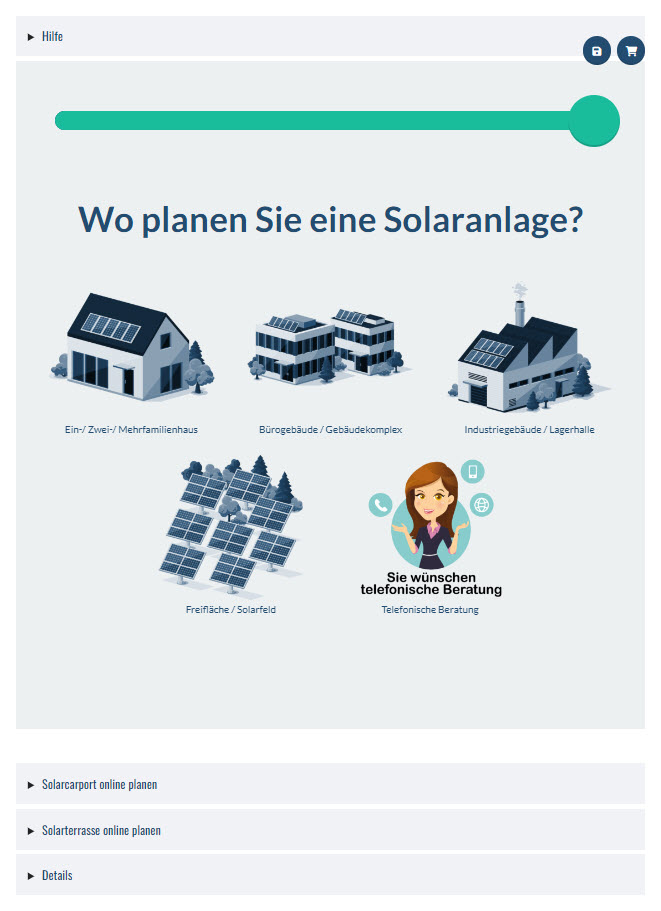
The solar system planner for the most common applications: Plan the solar system online here - Image: Xpert.Digital
More about it here:
🗒️ Top ten overview of sustainability certification systems for warehouses, commercial properties, office buildings and others
These sustainability certification systems provide clear guidance on how buildings, real estate and infrastructure projects can be designed and operated sustainably. Choosing the appropriate system depends on the project's goals, geographic location, and developer's priorities.
LEED (Leadership in Energy and Environmental Design)
Leed is one of the most famous certification systems and is managed by the US Green Building Council (USGBC). It evaluates various aspects such as energy efficiency, water use, interior quality and sustainable choice of location. The certification takes place in different stages, from “Certified” to “Platinum”.
BREEAM (Building Research Establishment Environmental Assessment Method)
Bream is a widespread certification system from Great Britain. It focuses on environmental performance, social responsibility and economic profitability. Breeam reviews range from “pass” to “outsanding”.
DGNB (German Society for Sustainable Building)
The DGNB is a German organization that sets sustainability standards for buildings and neighborhoods. It takes ecological, economic and socio-cultural criteria into account and awards certificates in the bronze, silver, gold and platinum levels.
HQE (Haute Environmental Quality)
HQE is a French certification system that wants to minimize the environmental impact of buildings. It covers aspects such as energy, water, health and comfort and awards certificates from “passable” to “excellent”.
WELL Building Standard
This certification system focuses on the health and well-being of building users. It takes into account aspects such as air quality, water, diet and exercise.
ÖGNB (Austrian Society for Sustainable Building)
The ÖGNB promotes sustainable building in Austria. Their certifications comprehensively take energy efficiency, resource use and life cycle costs into account.
Green Star
This Australian certification system assesses the sustainability of buildings and infrastructure projects. It places particular emphasis on energy and water efficiency as well as materials.
LEED v4.1
An updated version of the LEED standard that enables even more precise assessment of sustainability performance.
CASBEE (Comprehensive Assessment System for Building Environmental Efficiency)
A Japanese certification system that assesses the environmental impact of buildings and focuses on different building types.
Living Building Challenge
This demanding standard aims to create buildings that generate more resources than they consume. He emphasizes the creation of buildings as living systems.
Estidama Pearl Rating System
From the United Arab Emirates, developed specifically for the Middle East region.
Green Mark (Singapore)
Singapore's certification system that assesses the sustainability performance of buildings and infrastructure projects to minimize environmental impacts.
GRIHA (Green Rating for Integrated Habitat Assessment)
The national certification system of India.
EDGE (Excellence in Design for Greater Efficiencies)
A global certification program from IFC (International Finance Corporation).
WELL v2
The second version of the WELL Building Standard with updated criteria.
RESET default
Focused on indoor air quality and health.
Living Future Institute Programs
In addition to the Living Building Challenge, it also includes other programs to promote sustainable practices.
CEEQUAL
Certification system developed specifically for infrastructure projects.
ISO 14001
An international environmental management standard that applies not just to buildings but to the overall environmental performance of organizations.
🏢 The future of construction: sustainability and future security
In a constantly changing world, it is crucial to make buildings, real estate and infrastructure projects future-proof and sustainable. This is particularly true for commercial properties, warehouses, office buildings and other construction projects. Sustainable building is not only environmentally friendly, but can also reduce costs in the long term and increase the value of the property.
🌿 Sustainable design and materials
When constructing commercial properties and other buildings, sustainable design principles should be at the forefront. This includes selecting environmentally friendly materials that promote energy efficiency and minimize the environmental footprint. Using recycled materials, energy-efficient insulation and solar energy can significantly improve a building's sustainability.
🔒 Future security through flexibility
When planning buildings, it is important to think about the future. Technological developments and changing business requirements require flexibility in design. Commercial properties and office buildings should be designed to adapt to new requirements without the need for extensive renovations.
🌐 Smart technologies for efficiency
Integrating smart technologies such as building automation systems can improve the efficiency and sustainability of buildings. These systems automatically control lighting, heating, cooling and security to optimize energy consumption and increase user comfort.
🌍 Choice of location and infrastructure
The choice of location for commercial properties and warehouses can have a major impact on sustainability. A good location should be well connected to public transport to reduce the need for individual vehicles. In addition, existing infrastructure should be used to minimize environmental impacts.
💼 Economic aspects and long-term value creation
Sustainable construction can pay off economically in the long term. Energy efficiency measures and environmentally friendly technologies can reduce operating costs and increase property value. Investing in sustainable buildings can prove to be worthwhile for companies in the long term.
👥 Stakeholder engagement and awareness raising
In order to develop a holistic sustainability strategy, it is important to involve all relevant stakeholders. This includes architects, engineers, investors and users. Open communication and awareness of the benefits of sustainable building can make acceptance and implementation easier.
📐 Certifications and standards
Certifications such as LEED (Leadership in Energy and Environmental Design) or DGNB (German Society for Sustainable Building) offer clear guidelines for sustainable construction. Compliance with such standards can not only ensure the quality and sustainability of a project, but also improve the company's image.
🔄 Life cycle consideration
To ensure the long-term sustainability of buildings, it is important to consider the entire life cycle. This includes the planning and construction phases as well as operation and maintenance. Effective facility management can help maintain performance and energy efficiency over time.
🌈 Community responsibility
Sustainable construction goes beyond individual projects. It is a responsibility towards the community and future generations. By integrating ecological and social aspects, commercial real estate, warehouses and office buildings can not only offer economic benefits, but also shape a more positive future.
📣 Similar topics
- 🌿 Sustainable materials and design
- 🔒 Future security and flexibility
- 🌐 Smart technologies for efficiency
- 🌍 Choice of location and infrastructure
- 💼 Economic aspects and value retention
- 👥 Stakeholder engagement and communication
- 📐 Certifications and quality standards
- 🔄 Lifecycle management for sustainability
- 🌈 Community responsibility and sustainability
#️⃣ Hashtags: #SustainableConstruction #Future Security #Commercial Real Estate #Energy Efficiency #Environmental Protection
🏆 Economic and political significance of sustainability certification systems 🏆
Sustainability certification systems such as LEED, BREEAM or DGNB have gained considerable importance in today's economic and political landscape. Let's take a closer look at the different aspects:
🏢 Economic importance of sustainability certification systems
Cost savings through efficiency
Sustainable buildings designed and built according to these certification systems focus on energy efficiency, water conservation and material use. This leads to long-term cost savings in terms of energy and water consumption as well as maintenance costs.
Increase in the value of real estate
Buildings with sustainability certificates often have higher property values. The demand for green buildings is increasing as companies and individuals increasingly pay attention to sustainability.
Image and brand value
Companies can strengthen their image by operating in sustainable buildings. Sustainability certificates serve as a credible sign of social responsibility and environmental awareness.
Promoting innovative technologies
Compliance with these certification standards often requires the use of advanced technologies that can lead to the development of new business opportunities.
🌍 Political significance of sustainability certification systems
Environmental protection and climate change
Governments around the world are increasingly adopting sustainability policies to reduce CO2 emissions and curb climate change. Sustainable buildings help reduce the ecological footprint.
Fulfillment of international obligations
Many countries have signed international agreements to achieve sustainable development goals. Promoting sustainable buildings is one way to meet these commitments.
Promoting the circular economy
Sustainability certificates encourage the use of recycled materials and minimizing waste. This supports the development of a circular economy.
Job quality and health
Sustainable buildings often create a better working environment with good air quality and natural light. This can increase productivity and promote job satisfaction.
📣 Similar topics
Sustainability certification systems such as LEED, BREEAM and DGNB are of great importance both economically and politically. They not only promote efficiency and cost savings for companies, but also contribute to environmental sustainability, resource conservation and international commitment to sustainability.
- 🌱 Sustainability certification systems: economic benefits and cost savings
- 🏗️ Construction in transition: Political implications of sustainable buildings
- 💼 Corporate image and sustainability: brand value through environmentally friendly locations
- 🌎 International commitments: Contribution of sustainable buildings to global goals
- 🌞 Workplace quality and health: Impact of sustainable buildings on well-being
#️⃣ Hashtags: #SustainableBuildings #EnvironmentalProtection #EconomicBenefits #ClimateChange #ConstructionIndustry
Technical advice on energy-efficient renovation and new construction with solar solutions and heat pumps/air conditioning systems
I would be happy to serve as your personal advisor.
You can contact me by filling out the contact form below or simply call me on +49 89 89 674 804 (Munich) .
I'm looking forward to our joint project.
Xpert.Digital – Konrad Wolfenstein
Xpert.Digital is a hub for industry with a focus on digitalization, mechanical engineering, logistics/intralogistics and photovoltaics.
With our 360° business development solution, we support well-known companies from new business to after sales.
Market intelligence, smarketing, marketing automation, content development, PR, mail campaigns, personalized social media and lead nurturing are part of our digital tools.
You can find out more at: www.xpert.digital – www.xpert.solar – www.xpert.plus



